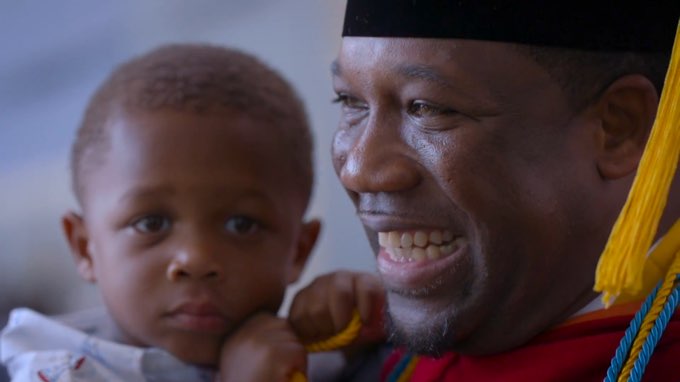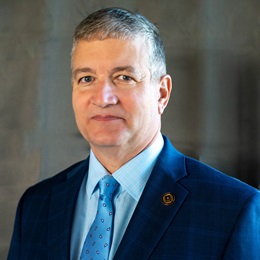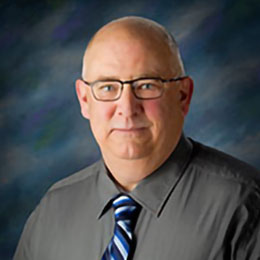Doctor of Ministry

Request Information
Doctor of Ministry

No matter your faith tradition, you can achieve your Doctor of Ministry (DMin) degree through South University’s online program. The DMin program provides the ability to help ministry leaders enhance their skills, and offers an innovative solution to earn Ministry’s highest degree. Students can move from their Bachelor’s degree through the DMin program toward their doctorate, without needing to spend years on a separate Master’s degree program. With the doctorate degree in ministry online, you can enjoy education at your own pace.
The online Doctor of Ministry degree at South University offers both a Standard Track and Advanced Track option. The DMin program helps to develop a student’s understanding of the nature and purpose of ministry, enhance the student’s competencies in ministry skills, and promote the student’s growth in spiritual maturity. Foundational courses provide an introduction and overview to the various disciplines required for effective ministry leadership. Ministry Skills courses, advanced Ministry Studies courses, and the Final Project further integrate biblical and theological perspectives into the practice of ministry. Students will also have the opportunity to gain lifelong learning skills that will enable them to continue their personal, intellectual and professional growth. In addition, graduates will retain access to the Logos theological library, which provides all course texts and research materials for their ministry beyond the degree.
Admission Requirements
Procedures for Admission to the Doctor of Ministry Program
Note: Not all Online Program offerings are available to residents of all U.S. states. Please contact an admissions representative for further information.
The criteria used in determining admission to the doctoral program include:
- An earned undergraduate degree from an accepted accredited institution with a CGPA of 2.7 or better on a 4.0 scale OR
- An earned undergraduate degree from an accepted accredited institution with a CGPA of 2.7 or better on a 4.0 scale during the applicant's last 60 semester hours or 90 quarter hours earned on the bachelor's degree and/or subsequent graduate work OR
- An earned graduate degree from an accepted accredited institution with a CGPA of 3.0 or better on a 4.0 scale.
- Interview with the Program Director or Chair.
- Submission of official transcripts from all post-secondary institutions attended, with submission due within 5 weeks of the class start date (refer to Conditional Acceptance).
- Applicants for whom English is a Second Language (ESL) must submit a minimum paper-based TOEFL
(Test of English as a Foreign Language) score of 550 or the electronic-based score of 79-80 to be considered for the program. - Completion of an application for admission.
Note: Applicants who are not citizens of the United States should refer to the section in the South University catalog entitled International Student Admissions Policy.
Exceptions to the Minimum GPA
Applications with CGPA lower than the stated program minimum (2.7 for the bachelor's degree and 3.0 for a graduate degree/coursework) may be considered for admission on the basis of evidence of academic and professional potential demonstrated by career and/or personal accomplishments indicated in a personal statement of academic and professional goals, a career resume or curriculum vita, and two letters of academic and/or professional recommendation. The Program Director/Chair in consultation with the Dean of the College or designee must approve exceptions.
Students admitted on an exception basis will be admitted as regular students on provisional status for the first quarter of enrollment. In order to remain enrolled after completion of the first quarter the student must achieve a CGPA of at least 3.0.
For additional admissions information please see the admissions section here.
Program Tracks
Standard Track: If you have a bachelor’s degree and are involved in the ministry and/or exploring if ministry is for you, the DMin program’s Standard Track may be right for you. You’ll start with foundational courses that introduce you to the various disciplines required for effective ministry leadership. Then, through ministry skills courses, advanced ministry studies, and a final project, you’ll explore and refine techniques for integrating biblical and theological perspectives into your practice of ministry.
Advanced Track: If you’re already active in the ministry and have completed a Master of Divinity (M.Div.) degree (with a 3.0 GPA) or related graduate degree with credits equivalent to the M.Div, you may be eligible to earn your doctorate in less time with the online DMin program’s Advanced Track. In this track, you’ll take a shorter path through the ministry study and skills courses, eventually tackling your final project before completing your degree.
Transfer credit is evaluated on a case-by-case basis. South University offers no guarantee that credit earned at another institution will be accepted into a program of study offered by South University.
Course Requirements
Choose four additional courses from the following:
Choose one of the following sequences:
Advanced standing credit is determined based on student's previous college work providing 56 credit hours of transfer credit.
Advanced Standing Credit: 56 Credits
Electives
Choose two electives from the following:
Choose one of the following sequences:
Outcomes
Upon completion of the program, students will be able to:
- Students will develop biblically informed and theologically reasoned ministry solutions that are consistent with the student's faith tradition and the needs of the student's chosen ministry setting.
- Students will evaluate the ethical and professional expectations appropriate to the practice of ministry.
- Students will develop strategies to resolve disputes and achieve resolution and reconciliation among parties in ministry settings.
- Students will collaborate with individuals and communities who exhibit differences of religious beliefs (or none), denominational differences, racial and ethnic differences, and gender differences..
- Students will communicate within their practice of ministry in a variety of settings.
- Students will synthesize research to successfully overcome and/or resolve complex issues in ministry settings in a doctoral-level project.
Career Outlook
These are some of the career options* you can explore when you have earned your degree:
- Pastors, ministry staff, and lay ministers in local churches/parishes; Missionary leaders
- Chaplains and spiritual care coordinators in a variety of institutional settings.
- Program staff leaders in parachurch organizations, non-profit service agencies, community development, advocacy and justice ministries
*South University does not promise or guarantee licensure, employment, or salary amounts.
Online Classroom
Haven’t experienced online learning before or wondering what it’s like to earn your degree online at South University? While the mode of learning is different from the traditional classroom experience with added convenience and flexibility, we hold the same high standards of academic excellence in the online classroom.
South University’s online programs combine a curriculum designed for student outcomes and a classroom designed for flexibility and engagement. Our online classroom learning platform, Brightspace, provides you with a host of features to enhance your learning experience, including:
- Advanced media content
- Personalized navigation
- Simplified online learning atmosphere
- Access to digital books
- Emailing and instant messaging options
We provide more than just an online classroom, bringing a range of campus experiences and services online. In addition, the online classroom is accessible on the go via mobile devices and with tools like the Pulse App. Pulse helps you stay connected and on track with your course by providing a number of features such as course calendars, readings and assignments, feedback and grades, and announcements.
Read more about online requirements here.
South University Doctor of Ministry Program
The goal of the DMin program is to produce ministry leaders and doers. Students in this program engage in what is termed, “Practical Theology”. The program centers on helping those who sense a call to vocational ministry, to hone their skills toward an intentional approach to improving the ministry in which they serve. The Final Project, which is the determining factor for receiving the degree, is meant to improve or create a ministry that will bless the people served by the student. As such, vocational orientation is one of our most important criteria for admitting students.
FAQs
Frequently Asked Questions
• “What are the vocational goals of your program?”
Our goal is to train men and women for more effective vocational ministry leadership. Most of our students are currently working in pastoral ministry, chaplaincy ministry (prison, hospital, corporate and other), and the non-profit sector. Our program trains students in doing ministry at a “state of the art” level, both through course content and in interaction with other vocational practitioners. Many others in the program are exploring a vocational ministry calling. Their experience with courses and with their fellow students can serve to solidify and direct that calling toward a ministry context fit for them.
• “What is the difference between a seminary program and South’s program?”
Our program has intentionally been structured to welcome those interested in vocational ministry from diverse denominations, traditions, or those who are independent. Most seminaries are affiliated with a sponsoring denomination and favor that denomination in their curricula. For us, diversity is a strength. We also emphasize practical ministry issues over strictly academic pursuits. We believe our emphases promote ministry doers and leaders by focusing on those skills which can be put into immediate practice in their ministry context.
• “Is the program accredited through ATS [The Association of Theological Schools]?
We are the Department of Ministry within South University, which is not a Christian school or Seminary. South University, and all of its Departments, are regionally accredited through the Southern Association of Colleges and Schools Commission on Colleges and is accountable to the United States Department of Education.
• “When are DMin classes typically held?”
The DMin classes are fully online meaning that you have some flexibility to deal with the weekly assignments. Students must post in the courses at least twice per week, on different days, to maintain their attendance. However, the most successful students will engage in the Discussion areas repeatedly while also uploading their weekly assignments (when applicable) each week. Our courses are 10 weeks in length and begin on Tuesdays. For maximum efficiency, they run back-to-back allowing students to move through the program rapidly.
• “How long will it take to complete the program?”
Since every student works at their own pace, and each student has different work and family commitments, it is hard to give an exact answer. However, if a student stays full time on the Standard Track, the student can expect to finish the credit portion of the degree in as few as 3 years. If the student stays full time on the advanced track (not just advanced standing), they can expect to graduate in as few as four to five quarters. These dates assume the student manages their final project efficiently. Once students begin the Final Project, each project varies greatly in the time it takes to do sufficient research, including Human Subject Research. Students should expect to add 30-40 weeks to their schedule in order to complete, and have approved, their Final Project.
• “Do I have to write a dissertation to complete the program?”
As this is a doctoral program, a final project of significance is required. At South, we have three options for a final project: a dissertation, a ministry project, or the completion of a supervisory CPE. While all of these projects are significant, and require significant work, a formal dissertation is not required.
Department Faculty
Scott E. McClelland
Dr. Scott McClelland serves as the Department Chair for South University's Department of Theology. He holds the BA and MA in Biblical Studies from Wheaton College, a ThM from Westminster Theological Seminary, and a PhD in New Testament from the University of Edinburgh in Scotland.
Among my several vocational roles, I have been a Senior Pastor in New York and southern California, and a co-pastor with my wife, Louise, in San Francisco. I also have served in the Academe as a full-time tenured professor, an adjunct prof, the Director of an off-campus program in San Francisco, an Associate Dean and Director of a south Florida regional campus, and a Dean of Extension Studies to help an isolated small school extend its education to a local urban area. Outside of the academic world, I have been a Director of Development for a non-profit relief agency, and a passenger service agent for an airline!
I am a native of Philadelphia, PA and currently reside in south Florida and on Whidbey Island, WA in the summer. My many vocational opportunities have allowed us to also live in the mid-Hudson Valley of New York, southern California, San Francisco, and Buffalo, NY.
I have taught in both undergraduate and graduate educational institutions such as The King’s College (NY), Nyack College, Westmont College, Houghton College, Trinity International University and Fuller Theological Seminary. During that time I have published several articles and given presentations as a member of the Society of Biblical Literature.
Outstanding Education for Remarkable Careers
We're committed to helping our graduates make impact in their professional and personal lives. We applaud our nursing alumni and the difference they make. Check out what some of our graduates have to say.
What's New
Latest News and Blogs

Feb 24, 2026
The Growing Need for Mental Health Counselors
Learn why the need for mental health counselors is growing, how high the demand is, and the types of valuable services they provide to clients.

Feb 18, 2026
PTA Alumni Spotlight: Veteran Leads Home Health Agency
See how South University helped US military veteran Waddie Freeman grow his career in healthcare, from becoming a PTA to running a home health agency.

Feb 17, 2026
The Future of Home Care: Trends and Predictions
Learn what home care trends are driving growth in home health care, including an aging population, new technology, and evolving payment models.

Feb 10, 2026
Popular Degrees for Veterans
Learn what degrees are a common choice for veterans as they set out to achieve their goals and transition smoothly from military member to civilian.

Feb 10, 2026
Assistant Dean Helps Patient Receive Treatment
Karen M. Wilcox, the Assistant Dean of the graduate programs, used her expertise to help one of her patients detect and receive treatment for cancer.

Feb 04, 2026
MSN Alumni Spotlight: From CNA to FNP
Meet South University graduate Charlene Coates and learn how she went from being a certified nursing assistant to becoming a family nurse practitioner.
Fill out the form and a representative will contact you today to better understand your academic goals plus answer any questions you may have.
Campuses offer flexible learning formats* including: on-campus, virtual instructions, and online courses.
*Clinical, practicum, and externship requirements exist in certain programs and require field experiences. Learning formats may not be flexible.
Success! Your request was submitted. We'll be in touch soon!
In the meantime, you can view some of our FAQs.
If you want to talk to an admissions representative ASAP, please contact us at (888) 444-3404.





